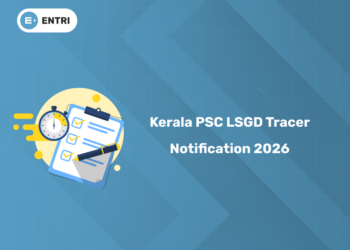Table of Contents
Any book can be a fascinating journey to read, but when it’s written in German, it becomes more than simply an escape it’s a bridge to learning a new language! Books are also a great way to motivate yourself to learn German.
In this article, we’ll look at some of the best German Books for Beginners
Ready to take your German skills to the next level? Get Free Demo Classes Here!
Understanding your Reading Level
Evaluating a text’s readability and comprehension requires determining its level of difficulty or ease. To connect readers with relevant texts according to their ability, reading levels are used. Here’s how to understand and evaluate reading levels:
Grade-Level: Indicates the grade level at which a learner can easily understand a text.
Lexile Measure: A scale that connects readers to books based on their reading aptitude and the difficulty of the content.
Flesch-Kincaid Grade Level: A readability test that assigns a U.S. school grade level, reflecting the number of years of schooling required to comprehend the text.
Guided Reading Level: The books are graded alphabetically (A to Z), with A being the easiest.
This method is frequently used by teachers to match books to their students reading levels.
Developmental Reading Assessment: A technique for determining a student’s reading level by evaluating accuracy, fluency, and comprehension.
SMOG Index: A simple reading measure derived from the quantity of polysyllabic words in a text. Frequently used in health communication to guarantee that public-facing content is comprehensible.
Accelerated Reader Level: A system in which books are assessed for their difficulty and granted a point value.
Sentence Complexity and Vocabulary: The reading level rises with more intricate sentence structures.
Higher reading levels are associated with words that have more syllables or less common usage.
Knowing readers’ reading levels guarantees that they will be pushed without becoming irritated. Additionally, it promotes literacy development by offering suitable resources that encourage learning and development.
Best German Books for Beginners
1: How do you say "Good Morning" in German?
Reading is one of the finest methods to increase your vocabulary and pick up colloquial language, yet language learning has several phases. Here are some of the best German novels for beginners to help you get started in choosing writers and books you’ll enjoy. You can always bring a book with you and read whenever and wherever you like.
Emil und die Detektive
For those learning German at the beginning or intermediate level, this is a classic book. It’s a well-known German children’s book about a young kid who moves to Berlin from his small town and was published in 1929. The narrative features authentic personalities and depictions of the Weimar Republic’s world of art, cabaret, and crime. For those learning German, this is a must-read.
Die Unendliche Geschichte
This novel by Michael Ende, also known as “The Never Ending Story” in English, is a fantasy story that many of us are already familiar with. One of the best ways to get better in German is to read novels with stories you are familiar with. If you’re interested in fantasy literature, this book is a great way to learn some of the terms that are frequently used in the genre.
Homo Faber
German classic written in the modern era by Swiss author Max Frisch. This work is excellent for beginning readers because of its engaging narrative and somewhat simple syntax and vocabulary. The narrative focusses on the life of an engineer who respects reason and common sense. He is compelled to reevaluate his outlook on life, nevertheless, by an intriguing series of occurrences. This story is easy enough for beginning and intermediate language learners to follow, with few grammatical obstacles.
Der Richter und Sein Henker
“The Judge and his Hangman” is another translation of this famous detective tale. Friedrich Dürrenmatt wrote it in 1950, and intermediate German students should read it as a classic. The narrative is simple to read and employs simple grammar. For individuals who would like to practise vocabulary acquisition through context, this book is ideal.
Die Verwandlung
This novel by Franz Kafka, often known as “Metamorphosis,” is a classic of literature. His use of short phrases and basic syntax makes this book ideal for those who are new to learning German. The storyline, which follows a salesman who discovers one day that he has been changed into an insect, is also a little out of the ordinary.The narrative flows well and the terminology is not too complicated, making this an excellent piece of fiction that any student studying German should read.
Ready to take your German skills to the next level? Get Free Demo Classes Here!











